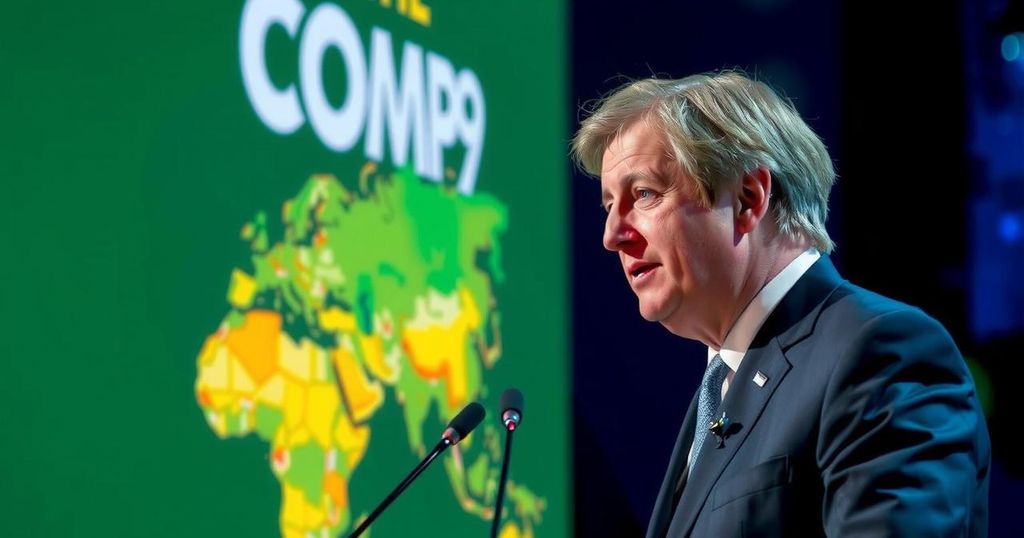Fairtrade International welcomed UK Prime Minister Sir Keir Starmer’s climate commitments at COP29, stressing the importance of trade policies in supporting farmers facing climate challenges. Amid controversies, Starmer reaffirmed the UK’s dedication to global climate leadership and compliance with the Paris Agreement. Fairtrade advocates for addressing climate justice in trade initiatives to enhance farmers’ resilience against climate impacts.
Fairtrade International has expressed its support for UK Prime Minister Sir Keir Starmer’s commitment to addressing climate change during the global COP29 conference in Baku, Azerbaijan. During the event, Prime Minister Starmer emphasized the UK’s ongoing efforts to combat the climate crisis, highlighting the significant challenges faced by agricultural sectors, particularly cocoa, due to worsening weather patterns linked to climate change. Amid reports of tension between nations, including Argentina’s withdrawal from negotiations, Starmer reaffirmed the UK’s dedication to global climate leadership, ensuring alignment with the Paris Agreement’s goals to limit global warming. In response to the Prime Minister’s address, Fairtrade representatives reiterated the critical need for global climate action, especially in the agricultural sector where farmers are heavily impacted by climate challenges. Alexander Carnwath, the Head of Public Affairs at Fairtrade Foundation, emphasized that the UK’s trade policies should be revised to support climate justice, which would enable farmers and workers to secure better prices for their products. This is deemed essential for successful climate action, urging the government to recognize the interconnectedness of trade and environmental sustainability.
Fairtrade International advocates for sustainable practices within the agricultural sector, particularly aimed at supporting farmers who are vulnerable to the adverse effects of climate change. Recent events, including COP29, have spotlighted the urgency of implementing effective climate policies on a global scale. The challenges faced by farmers, especially in vulnerable sectors such as cocoa, underscore the need for integrated approaches that link trade policies to climate initiatives. As climate change continues to pose risks to economic stability, particularly in agriculture, the discourse surrounding equitable pricing and sustainable farming practices becomes increasingly pertinent.
In conclusion, the ongoing commitment of the UK government, as articulated by Prime Minister Sir Keir Starmer at COP29, underscores the importance of tackling climate change through international collaboration. Furthermore, Fairtrade advocates for the integration of climate justice in trade policies, emphasizing that supporting farmers through fair pricing is essential for effective climate action. This linkage highlights the need for nations to embrace a holistic approach to ensure resilient and sustainable agricultural practices worldwide.
Original Source: www.confectioneryproduction.com







